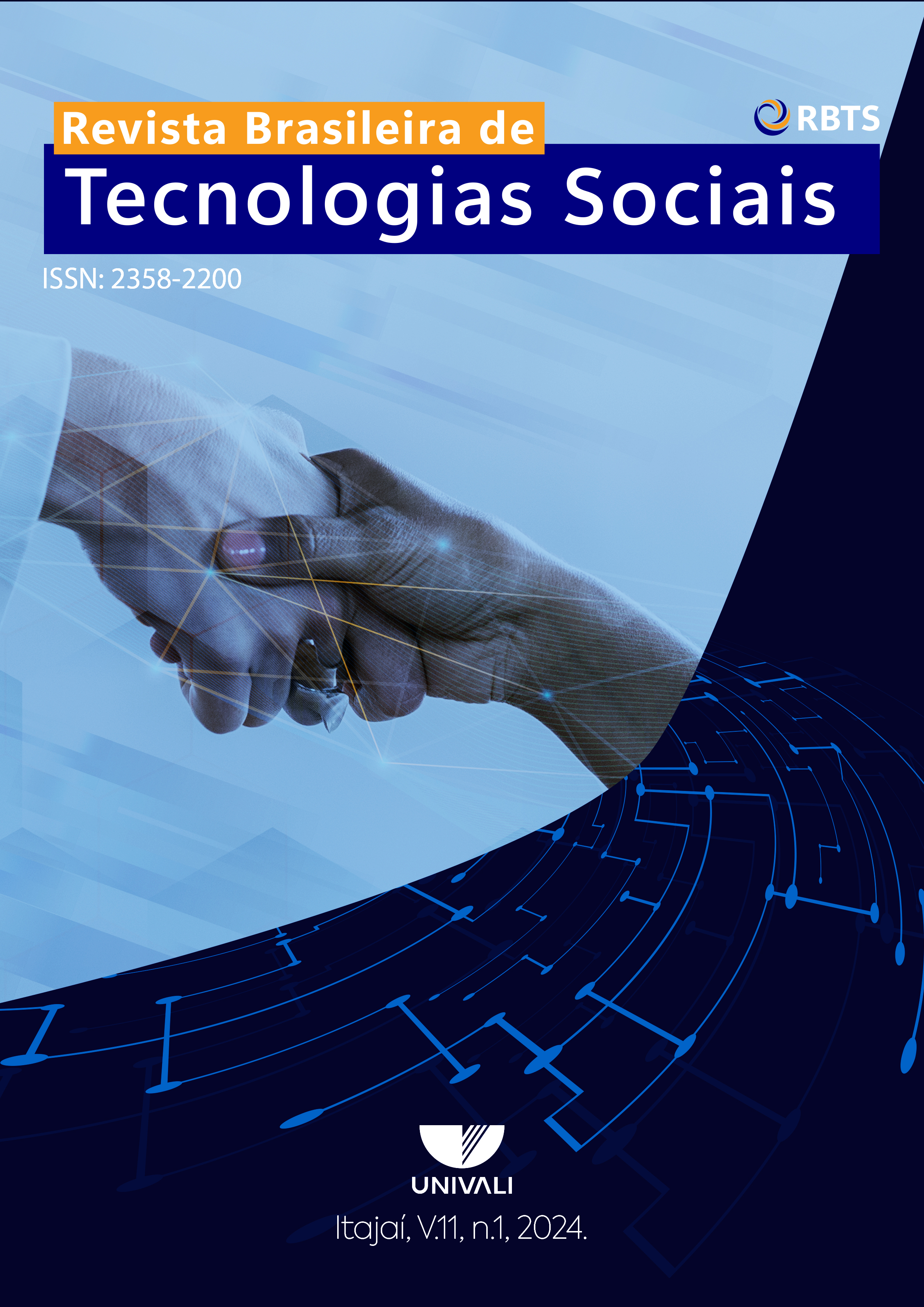
Brazil suffers from the problem of lack of basic sanitation, and this fact is intensified in the Amazon region, as a large part of the population lives in areas of vulnerability. The use of chemical coagulants causes harm to the environment and human health. The application of natural coagulants emerges as a promising alternative, as it dispenses with the use of chemicals, presents a simple, low-cost, easy-to-reproduce methodology that is accessible to any community, promoting health and environmental improvements. The objective of this study was to produce a natural coagulant based on Amazonian cacti to treat water intended for human consumption in a riverside community. For the study, about 500 grams of the aerial part of Cereus jamacaru was collected in the community of Santa Maria do Boiaçu-RR. The thorns were removed, and the cactus was washed, cut, accommodated in trays and taken to the sun. After drying, the cactus pieces were crushed and sieved. The water samples for the study were collected at 3 points and the treatability test was carried out in the laboratory. Statistical analyzes revealed that the natural cactus-based coagulant is an efficient social technology for the treatment of groundwater and surface water.




AMERICAN PUBLIC HEALTH ASSOCIATION – APHA. (Ed. 23). (2017). Standard Methods of Examination of Water and Wastewater. New York: American Water Works Association.
ANG, Wei Lun; MOHAMMAD, Abdul Wahab. State of the art and sustainability of natural coagulants in water and wastewater treatment. Journal of Cleaner Production, v. 262, p. 121267, 2020.
BATISTA, Vanessa de Almeida et al. Tecnologias sociais voltadas para o saneamento básico de comunidades ribeirinhas na Amazônia. Revista Brasileira de Gestão Ambiental e Sustentabilidade, v. 8, n. 19, p. 909-920, 2021.
BRASIL. Ministério da Saúde. (2021, 04 de maio). Portaria nº888, de 04 de maio de 2021. Consolidação das normas sobre as ações e os serviços de saúde do Sistema Único de Saúde. Diário Oficial da União, Brasília.
BEYENE, Hayelom Dargo; HAILEGEBRIAL, Tessema Derbe; DIRERSA, Worku Batu. Investigation of coagulation activity of cactus powder in water treatment. Journal of Applied Chemistry, v. 2016, p. 1-9, 2016.
CAVALCANTE, Maria Madalena Aguiar et al. Amazônia: explorando o baixo Rio Branco–Roraima/Amazonas. Revista do Departamento de Geografia, v. 40, p. 203-217, 2020.
DOMINGOS, Bianca Siqueira Martins; RIBEIRO, Rosinei Batista. Geração de renda informal e desenvolvimento econômico: tecnologias sociais como uma alternativa à precarização. QUANTA-Comunicação e Cultura, v. 1, n. 1, p. 78-83, 2015.
FEDALA, Naziha et al. RETRACTED: physical parameters affecting coagulation of turbid water with Opuntia ficus-indica cactus. 2015.
FUNDO DAS NAÇÕES UNIDAS – UNICEF (2018). Agenda pela infância e adolescência na Amazônia. Available in:
<https://www.unicef.org/brazil/media/1131/file/Agenda_pela_infancia_e_adolescencia_na_Amazonia.pdf>. Acessed on: 1 abr. 2021.
JÚNIOR, Lima; ABREU, F. O. M. S. Produtos naturais utilizados como coagulantes e floculantes para tratamento de águas: uma revisão sobre benefícios e potencialidades. Revista Virtual de Química, v. 10, n. 3, 2018.
KARANJA, Ayub; FENGTING, Li; NG’ANG’A, W. Use of cactus opuntia as a natural coagulant: water treatment in developing countries. Int. J. Adv. Res, v. 5, n. 3, p. 884-94, 2017.
LAMENDOLA, Walter. Social work, social technologies, and sustainable community development. Journal of Technology in Human Services, v. 37, n. 2-3, p. 79-92, 2019.
LIBÂNIO, M. Fundamentos de qualidade e tratamento de água, 2010. Campinas: Átomo.
LIMA, Paulo Renato; DE ALMEIDA, Igor Vivian; VICENTINI, Veronica Elisa Pimenta. Os diferentes tipos de coagulantes naturais para o tratamento de água: uma revisão. Evidência, v. 20, n. 1, p. 9-12, 2020.
MELLO, C. J. Trabalho, tecnologia e solidariedade. Florianópolis: Insular, 2018.
MILLER, Sarah M. et al. Toward understanding the efficacy and mechanism of Opuntia spp. as a natural coagulant for potential application in water treatment. Environmental science & technology, v. 42, n. 12, p. 4274-4279, 2008.
MOURÃO, Nadja Maria. Tecnologias sociais e empreendimentos criativos na Região Metropolitana de Belo Horizonte/MG. Revista Brasileira de Desenvolvimento Regional, v. 5, n. 1, p. 053-067, 2017.
NHARINGO, Tichaona; MOYO, Mambo. Application of Opuntia ficus-indica in bioremediation of wastewaters. A critical review. Journal of Environmental Management, v. 166, p. 55-72, 2016.
OLADOJA, N. A. et al. A new indigenous green option for turbidity removal from aqueous system. Separation and Purification Technology, v. 186, p. 166-174, 2017.
OLIVEIRA, Rodrigo Leonardo Costa de. Uso e conhecimento das espécies lenhosas em uma Comunidade Indígena na savana de Roraima. 2016.
OTHMANI, Bouthaina et al. Characterization of two cactus formulation-based flocculants and investigation on their flocculating ability for cationic and anionic dyes removal. Polymers, v. 12, n. 9, p. 1964, 2020.
PASSOS, Mahedy Araujo Bastos. PLANTAS ALIMENTÍCIAS NíO CONVENCIONAIS (PANC) OCORRENTES EM RORAIMA. Revista Eletrônica Científica Ensino Interdisciplinar, v. 5, n. 14, 2019.
RORAIMA, INSTITUTO DE TERRAS E COLONIZAÇÃO DE RORAIMA – ITERAIMA (2010). Plano de controle ambiental Agrovila Santa Maria do Boiaçu.
SISTEMA NACIONAL DE INFORMAÇÕES SOBRE SANEAMENTO – SNIS, 2019. Available in: http://www.snis.gov.br/diagnostico-anual-agua-e-esgotos/diagnostico-dos-servicos-de-agua-e-esgotos-2019 . Accessed on: abril 2021.
TAYLOR, Nigel P.; ZAPPI, Daniela C. Cactaceae in Flora do Brasil 2020. Jardim Botânico do Rio de Janeiro, 2020. Available in: <http://floradobrasil.jbrj.gov.br/reflora/floradobrasil/FB70>. Accessed on: 12 mar. 2021
VILLABONA ORTIZ, Ángel; PAZ ASTUDILLO, Isabel Cristina; MARTÍNEZ GARCÍA, Jasser. Caracterización de la Opuntia ficus-indica para su uso como coagulante natural. Revista Colombiana de Biotecnología, v. 15, n. 1, p. 137-144, 2013.
ZARA, Ricardo Fiori; THOMAZINI, Maria Helena; LENZ, Guilherme Felipe. Estudo da eficiência de polímero natural extraído do cacto mandacaru (Cereus jamacaru) como auxiliar nos processos de coagulação e floculação no tratamento de água. Revista de estudos ambientais, v. 14, n. 2, p. 75-83, 2012.






The Brazilian Journal of Social Technologies is a Qualis B1 publication, according to the Qualis Periódicos CAPES 2017-2020 classification.
The Brazilian Journal of Social Technologies aims to disseminate scientific knowledge through a biannual publication, which is characterized by multithematic and interdisciplinary content aimed, preferably, at the dissemination of work developed by the country's Professional Master's Degrees, in the form of products or processes that can be characterized as Social Technologies. Currently the editors are professors Carlos Roberto Praxedes dos Santos (Public Policy Management) and Graziela Liebel (Health and Work Management).

